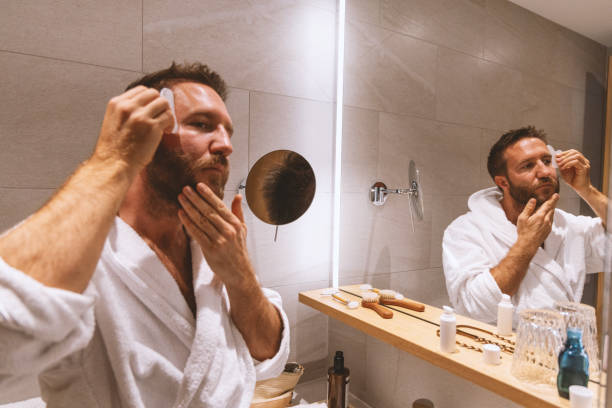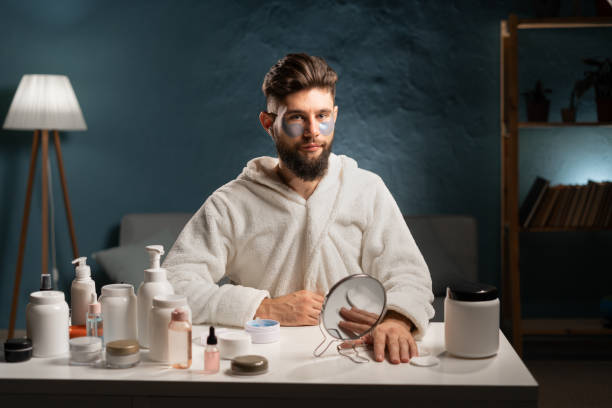Have you ever felt that your skin simply doesn’t bounce back overnight? Many of us battle issues like dryness, fine lines, and dullness because our nighttime skincare routine isn’t working as hard as it should for our skin repair. A well-structured nighttime regimen can transform tired, lackluster skin into a rejuvenated, glowing canvas by supporting natural repair processes during sleep. If you’re ready to revitalize your skin while you rest, read on to discover the best approach to nighttime skincare and skin repair.
Why Nighttime Skincare Matters for Skin Repair
When the day ends, your skin is exhausted from battling environmental stressors like pollution, UV rays, and makeup. Nighttime skincare provides an opportunity to reset and repair. During sleep, your body increases blood flow to the skin, boosting cell regeneration and collagen production. However, without the right routine, the benefits of these natural processes can be compromised.
A comprehensive nighttime routine targets key issues:
- Hydration: Restores moisture lost during the day.
- Repair: Supports cellular regeneration and repair mechanisms.
- Protection: Prepares the skin to fend off irritants and maintain a healthy barrier.

By focusing on both nighttime skincare and skin repair, you not only address visible signs of aging but also enhance overall skin health.
Essential Steps for a Nighttime Skincare Routine
A successful nighttime regimen involves a series of deliberate steps that work together to maximize skin repair. Here’s a detailed guide to creating a routine that truly makes a difference:
1. Cleanse Thoroughly
Cleansing is the foundation of any effective nighttime routine. Removing makeup, dirt, and impurities allows your skin to breathe and absorb subsequent products more effectively. If you wear makeup or sunscreen, consider starting with double cleansing.
- First Cleanse: Use an oil-based cleanser to dissolve makeup and remove sebum. This step ensures that the water-based cleanser can work more efficiently.
- Second Cleanse: Follow up with a gentle water-based cleanser to remove any remaining impurities. This dual-step process primes your skin for the rest of your routine.

If you’re curious about how double cleansing can improve your overall skin health, check out A Beginner’s Guide to Double Cleansing.
2. Exfoliate (But Not Every Night)
Exfoliation helps slough off dead skin cells, revealing a fresher layer of skin underneath. However, over-exfoliating can disrupt your skin’s natural barrier, so aim for one to two times per week, depending on your skin type.
- Chemical Exfoliants: Look for gentle acids like lactic acid or glycolic acid, which not only exfoliate but also promote collagen production.
- Physical Exfoliants: Use sparingly, as these can be too abrasive for sensitive skin.
Remember, exfoliation is about balance—ensuring your skin is smooth enough to absorb nourishing products without causing irritation.
3. Apply a Targeted Serum
Serums are concentrated formulas that deliver active ingredients deep into the skin. For nighttime skincare, focus on serums that promote skin repair and regeneration.
- Antioxidant Serums: Ingredients like vitamin C and E help combat free radicals and support collagen synthesis.
- Peptide Serums: These promote skin elasticity and repair microscopic damage.
- Hyaluronic Acid: A powerful hydrating ingredient that plumps the skin and locks in moisture.
Choose a serum that addresses your specific skin concerns to boost the repair process while you sleep.
4. Moisturize for Deep Hydration
Moisturizing is a non-negotiable step in any nighttime routine. A good moisturizer helps seal in all the benefits of your previous steps and provides the necessary hydration for skin repair.
- Rich Creams: Ideal for dry or mature skin, these provide long-lasting hydration and barrier support.
- Gels and Lotions: Perfect for oily or combination skin, as they hydrate without clogging pores.
Look for products containing ceramides and fatty acids, which are crucial for restoring the skin’s protective barrier.
5. Don’t Forget Eye Cream
The delicate skin around your eyes can reveal a lot about your overall skin health. An eye cream designed for nighttime use can help reduce puffiness, dark circles, and fine lines.
- Peptide-Rich Formulas: Support collagen production and improve firmness.
- Hydrating Ingredients: Such as hyaluronic acid to keep the eye area supple and moisturized.
Apply gently with your ring finger to avoid tugging on the sensitive skin.
6. Use a Night Cream or Sleeping Mask
For an extra boost in skin repair, consider incorporating a night cream or sleeping mask into your routine. These products are formulated to work overnight, providing a concentrated dose of active ingredients that support skin regeneration.
- Night Creams: Often thicker, they help lock in moisture and repair damage while you sleep.
- Sleeping Masks: Provide a more intensive treatment, sealing in hydration and delivering a potent mix of actives.
Use these products as the final step in your routine to ensure maximum benefits.
Additional Tips for Maximizing Nighttime Skincare
Creating an effective nighttime skincare routine goes beyond just choosing the right products. Here are some practical tips to enhance your regimen and support skin repair:
- Consistency is Key: Stick to your routine every night to see long-term improvements. Over time, your skin will adjust, and the benefits will become more apparent.
- Create a Relaxing Environment: Your skincare routine should be a calming ritual. Dim the lights, play soft music, or indulge in a short meditation session to reduce stress, which can negatively impact skin health.
- Mind Your Sleep: Quality sleep is essential for skin repair. Ensure your sleeping environment is conducive to rest—opt for clean, comfortable bedding and maintain a cool room temperature.
- Stay Hydrated: Drinking enough water throughout the day supports overall skin hydration and repair, complementing your topical treatments.
- Adjust for Seasons: Your skincare needs can change with the seasons. In colder months, you might need richer creams, while in summer, lighter formulations may be more suitable.
Real-World Applications and Success Stories
Many individuals have experienced transformative results by adopting a thoughtful nighttime skincare routine. For instance, someone with chronic dryness and fine lines may find that incorporating a peptide serum followed by a rich night cream can noticeably improve skin texture and reduce signs of aging. Others might see significant reductions in acne and post-acne marks by ensuring they double cleanse and exfoliate properly.
These success stories underline the fact that even small changes in your nighttime skincare routine can lead to meaningful improvements in your skin’s health and appearance.
Integrating Your Routine with a Holistic Approach
A robust nighttime skincare regimen is part of a broader self-care strategy. While your topical products work to repair your skin, overall wellness practices play a significant role in the results you see. Consider combining your skincare routine with stress management techniques, a balanced diet, and regular exercise for a comprehensive approach to health.
If you’re interested in further exploring self-care and its impact on your well-being, visit venzec.icu for more in-depth resources on mindfulness, personal growth, and holistic wellness.
Final Thoughts
Crafting the best nighttime skincare routine for skin repair requires a commitment to understanding your skin’s unique needs and a willingness to experiment with different products and techniques. By focusing on essential steps such as double cleansing, targeted serums, and intensive moisturizers, you can create a regimen that not only addresses immediate concerns but also supports long-term skin health.
Your journey to better skin repair starts with simple, actionable changes that build up over time. Embrace the process, listen to your skin, and allow your nighttime routine to become a ritual of self-care and rejuvenation. With persistence and the right approach, you’ll wake up to a complexion that looks and feels healthier, more resilient, and truly radiant.
For additional insights on refining your skincare habits, consider checking out A Beginner’s Guide to Double Cleansing. Enjoy the journey toward optimal skin repair, and let your nighttime routine be a testament to the care and attention you invest in yourself.









